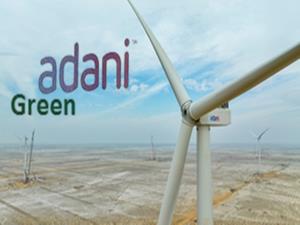Sri Lanka's Unpredictable Policies Driving Away Foreign Investors, Says US State Dept Report
"Foreign investors consistently report high transaction costs, unpredictable policies, and opaque procurement procedures," the report states.
"In February 2025, Indian firm Adani Green Energy withdrew from a proposed $400 million, 484 MW Renewable Energy Wind Farm project in northern Sri Lanka, citing Sri Lankan government efforts to renegotiate a previously awarded contract," the State Department said in the report..
President Dissanayake's government sought lower unit prices for the electricity, which Adani Green found unviable after the project's prior approval under the previous government, it points out.
The USA's 2025 Investment Climate Statements report states that while Sri Lanka is showing signs of recovery from its 2022 economic crisis, the country's "investment climate remains challenging".
This is despite improved political stability following the sweeping 2024 electoral victory of President Dissanayake and his National People's Power (NPP) coalition.
The US report points out that while Sri Lanka's National People's Power (NPP) coalition supports the country's $3 billion IMF programme, concerns linger over its historically Marxist, anti-Western stance.
Overall, "investors report that doing business remains difficult, frequently citing concerns about project reversals, regulatory shifts, slow decision making, and inadequate support for established businesses", the report points out.
Adani tendered the most competitive tariff of 8.26 cents per unit, after two years of negotiations. While the tariff was in US dollars, Adani was to be paid in Sri Lankan rupees, which would have been a big advantage as it would not have caused any foreign exchange strain on the island nation's fragile economy.
The Adani Group eventually veered around to the view that it was better to utilise its resources in other, more promising countries like India, where renewable energy projects are coming up and the government regulations do not pose an obstacle.
Sri Lanka reportedly wanted Adani to lower its tariff to sub 5 cents, which the Adani Group considered as unviable. The country is yet to find a single developer willing to undertake the project at that price.
Adani Group has gone ahead with its renewable energy projects outside Sri Lanka and currently has over 15 GW of renewable energy capacity commissioned, which is targeted to go up to 50 GW by 2030, making it among the top three 3 global renewable energy players.
Adani's investment, including for setting up the transmission infrastructure for the wind project, would have been over $1 billion.
"Foreign direct investment (FDI) in Sri Lanka remains constrained, with most transactions in the modest $3 to $5 million range," the US report said.
"Despite the government's $5 billion FDI target for 2025, experienced investors emphasise that policy stability, regulatory reform, and improved transparency must precede any significant uptick in large-scale investments," it added.
It said US firms continue to explore opportunities in sectors such as ICT, energy, aviation, and defence.
"However, regulatory unpredictability, bureaucratic hurdles, and selective transparency continue to limit broader participation. The Sri Lankan government's institutional capacity to encourage an open investment environment remains limited despite positive rhetoric," the report added.
It further states that the IMF and local business chambers emphasise the need for comprehensive structural reforms, including trade facilitation, digitisation, and stronger governance mechanisms.
Stating that Sri Lanka's implementation of foreign investment policies is "inconsistent", the document said the Board of Investment (BOI) struggles to function as a "one-stop shop" due to fragmented authority across multiple government departments, creating lengthy approval processes that frustrate potential investors.
"Other key impediments include unnecessary regulations, legal uncertainty, and poor bureaucratic responsiveness," it said.
The change in policy over the privatisation of loss-making state-owned enterprises, especially the Ceylon Electricity Board, hinders the development of cost-effective energy supplies crucial for industrial operations, the report points out.
The NPP government publicly promotes a desire for inward investment. In January 2025, President Dissanayake committed to finalising a $3.7 billion Sinopec oil refinery project, the largest FDI project in Sri Lankan history, to be located adjacent to Chinese-controlled Hambantota International Port.
"Many potential investors remain reluctant to invest given these ongoing mixed messages. Some senior government officials regularly castigate private sector-led economic growth and publicly promote state-owned collectivism as the country's preferred investment model," the State Department report added.

Legal Disclaimer:
MENAFN provides the
information “as is” without warranty of any kind. We do not accept
any responsibility or liability for the accuracy, content, images,
videos, licenses, completeness, legality, or reliability of the information
contained in this article. If you have any complaints or copyright
issues related to this article, kindly contact the provider above.
Most popular stories
Market Research

- Alt.Town Introduces $TOWN Token Utility Across Platform Services And Launches Valuefi Deposit Event
- BTCC Exchange Maintains 143% Total Reserve Ratio In September 2025 Demonstrating Continued Financial Strength
- Salvium Solves The Privacy Paradox: Salvium One Delivers Mica-Compliant Privacy That Exchanges Can List
- Zebu Live 2025 Welcomes Coinbase, Solana, And Other Leaders Together For UK's Biggest Web3 Summit
- Tapbit At TOKEN2049: Reshaping The Crypto Landscape Through Product Innovation
- Thrivestate Launches“Fly Before You Buy” Program, Enabling International Buyers To Explore Dubai Before Committing






















Comments
No comment